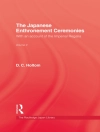By the 1920s, much of the world was ‘dance mad, ’ as dancers from Buenos Aires to Tokyo, from Manchester to Johannesburg and from Chelyabinsk to Auckland, engaged in the Charleston, the foxtrot and a whole host of other fashionable dances.
Worlds of social dancing examines how these dance cultures spread around the globe at this time and how they were altered to suit local tastes. As it looks at dance as a ‘social world’, the book explores the social and personal relationships established in encounters on dance floors on all continents. It also acknowledges the impact of radio and (sound) film as well as the contribution of dance teachers, musicians and other entertainment professionals to the making of the new dance culture.
Tabla de materias
Introduction Dance floor encounters and the global rise of couple dancing: an introduction to the worlds of social dancing – Klaus Nathaus and James Nott
1 Tango dancing in Buenos Aires: women, style and intimacy (1920–1940) – Cecilia Tossounian
2 Building ‘Dreamland’: dancers, musicians, and the transformation of social dancing into mass culture in the USA, c. 1900–1941 – Klaus Nathaus
3 ‘We do not want “fairies” in the ballroom’: working-class men, dancing and the renegotiation of masculinity in interwar Britain – James Nott
4 Similar steps, different venues: the making of segregated dancing worlds in South Africa, 1910–1939 – Alida Maria Green
5 ‘European dances’ in colonial Kikuyuland: modernities, ethnicity, and politics, 1926–1947 – Cécile Feza Bushidi
6 Domesticating the social dance: the case of New Zealand between the two World Wars – John Griffiths
7 Demarcating status: tango music and dance in Japan, 1913–1940 – Yuiko Asaba
8 The rise of Chinese taxi-dancers: glamorous careers, romantic fantasies, and sexual dreams on the dance floors of Shanghai, 1919–1937 – Andrew David Field
9 Dancing through dictatorship: everyday practices and affective experiences of social dancing in Fascist Italy – Kate Ferris
10 Co-ordinating for love: establishing conventions of romantic couple dancing in interwar Germany – Klaus Nathaus
11 Between control, education, and free communication: socialdancing in the USSR from the 1920s to the early 1960s – Igor Narskiy
Sobre el autor
Klaus Nathaus is Professor of History at the University of Oslo James Nott is a Lecturer in Modern British History at the University of St Andrews












